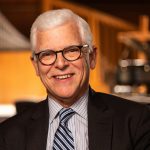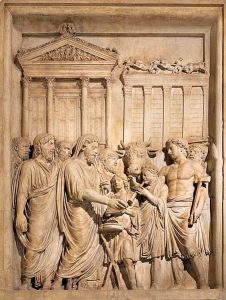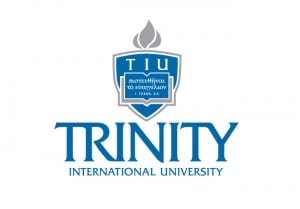
A few years ago in an introductory course on the New Testament, I introduced my students to Paul’s detailed argument in 1 Corinthians 8-10 on the Christian response to the issue of eating meat that had been offered to idols. I prefaced my remarks saying, “This problem is not one that we confront today. We buy meat at Jewel-Osco [the Chicago equivalent to Publix] and never enquire whether the ground beef or steak was previously offered in sacrifice to some god.”
Immediately, a hand shot up at the back of the room. Rose, a student from Nigeria, asked, “Professor Green, if my neighbor invites me to eat at their house and they set before me goat meat that I know has been offered to their god, should I eat it?” The class looked at Rose, then turned back to look at me. “Ok, well, um….”
In contrast to the rest of us, Rose had to confront the very problem that Paul and the Corinthians faced. Was she free to eat the goat meat? But, still, did Paul’s extensive discussion hold any relevance for us who lived in the ‘burbs of Chicago? What about us in South Florida today?
Idol Meat and Christian Freedom

In 1 Corinthians Paul addresses two issues that arose in the Corinthian church. The first was whether a Christian is free to eat meat which had been sacrificed in pagan temples and then subsequently went on sale in the macellum or marketplace. The second question was whether a Christian was free to eat at a dining table, a triclinium, located in an idol temple. Both these issues appear in chapters 8 through 10.
Type of Sacrifices
One was the private sacrifice where the worshipper offered the animal and a small part was burnt on the altar. A portion was given to the priests for their service and the rest was returned to the worshipper who, along with others, would consume it at a banquet commonly held within the precincts of the temple. Those who offered the sacrifice would send out invitations like this one: “Chaermon [the host] invites you to dine at the banquet of the Lord Serapis in the Serapeum tomorrow, that is, the 15th, from the ninth hour.” If a Christian were invited to such a feast, were they free to participate? Paul’s answer is a resounding “No!” since in such cases one could not separate eating the meat from the worship of the god in the temple (see 1 Corinthians10:18-22; 8:10). Christian freedom has limits.
The other kind of sacrifice was public rather than private. In these sacrifices the animal was similarly divided with a small part burnt on the altar, a portion given to the priests, and the rest was given to the civic magistrates. Whatever they did not use was sold in the macellum. The Jews prohibited eating such meat since it was associated with idolatry. In contrast, Paul argues that a Christian was free to eat this meat (10:25-26). However, Paul limited the use of this freedom given the effect it may have on other members of the Christian community.
Paul on Idol Meat, Freedom, and Community
Paul argues that a Christian is entirely free to eat idol meat bought in the macellum and consumed at home since “we know that ‘no idol in the world really exists,’ and that ‘there is no God but one” (8:4). He again affirms such freedom declaring, “the earth and its fullness are the Lord’s” (10:26).
But some in the church at Corinth could not separate eating such meat from the worship of the god (8:7, 10-11). So, Paul exhorts the Corinthians, “But take care that this liberty of yours does not somehow become a stumbling block to the weak” (8:9). Liberty has limits; Paul will not exercise his freedom to eat idol meat if, in the end, it will end up causing harm to a fellow believer. “Therefore,” he says, “if food is a cause of their falling, I will never eat meat, so that I may not cause one of them to fall” (8:13). Freedom is limited if its exercise harms others.
At this point Paul launches into an extensive argument about Christian freedom. He begins chapter 9 saying, “Am I not free?” He affirms his freedom throughout the chapter while, at the same time arguing that he willingly restricts his freedom because of higher goals. He is indeed free, yet he makes himself “a slave to all” (9:19).
Love and Freedom in Ancient Corinth and Contemporary North America
Put simply, love constrains freedom. The well-being of others, loving neighbor as oneself, means willfully restraining one’s rights if the exercise of freedom will in some way bring harm to the other person. Limiting our rights does not mean that we are not free. It means that love for God and other people is the highest value (1 Corinthians 13:13). Paul learned that from Jesus (Mark 12:28-34) and the Old Testament (Deuteronomy 6:5; Leviticus 19:9-18).
And today? Many affirm our strongly held value of freedom over against the multiple calls and rules about wearing masks and getting vaccinated in the face of the coronavirus pandemic. We see the placards and hear the cries: “Freedom ‘Matters’ No Forced Masks!” “Freedom Not Force.”
What would Paul say to us? What did he say to the Corinthians? Love limits freedom; limiting freedom for the sake of the other person does not mean losing freedom. In short, to protect those around us in our home, church, school, job and community, we will mask and vax because we love our neighbor as ourselves. We do not loose freedom by loving, that is, by prioritizing the well-being of the other over our own rights.
 Dr. Gene L. Green is the Dean of Trinity International University – Florida. Visit them at tiu.edu/florida
Dr. Gene L. Green is the Dean of Trinity International University – Florida. Visit them at tiu.edu/florida
Read last month’s article by Dr. Gene L. Green at: https://www.goodnewsfl.org/is-a-college-education-really-worth-it/

Comments